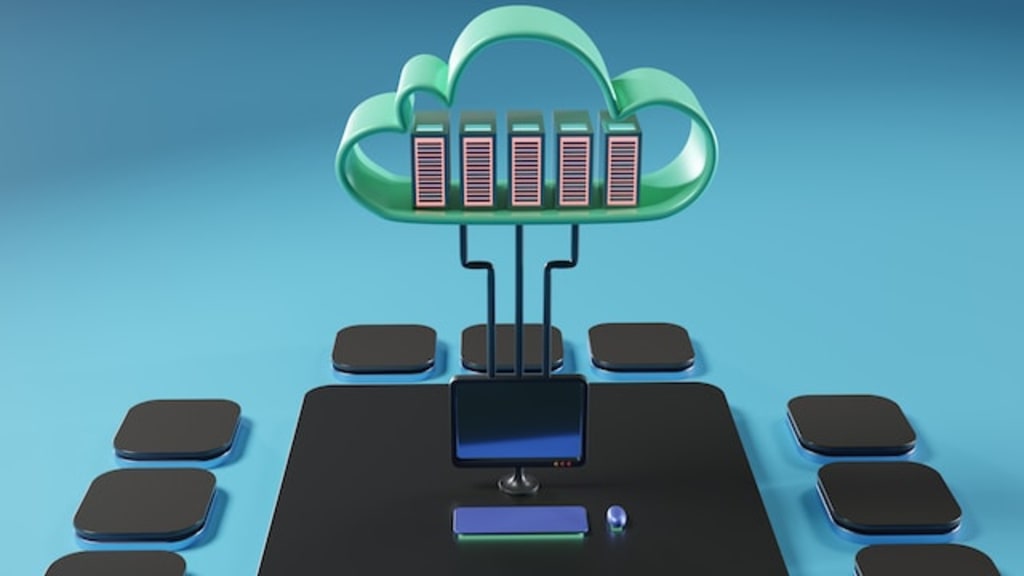Public vs. Private cloud - A Comparative Study
A Comparison Between Public and Private Cloud

Digital transformation is the central theme for businesses across sectors and cloud computing, a transformative technology, is facilitating this change. Cloud computing provides on-demand scalable and flexible resources and this has enabled organizations to transform their operations completely.
In this article, I will define public and private cloud services and their respective advantages and disadvantages. We will also explore how they relate vis-e-vis the hybrid cloud and finally evaluate which cloud service offers more value to the business.
What Is A Public Cloud?
A public cloud model provides on-demand computing services and infrastructure, managed by third-party providers. While a public cloud model shares its services across multiple organizations, the data and applications remain private and are not shared. It offers services like Software as a Service (SaaS), Platform as a Service (PaaS) and Infrastructure as a Service (IaaS) to customers on pay-per-use charges. Examples of public cloud platforms are IBM’s Blue Cloud, Amazon Elastic Compute Cloud (EC2), Microsoft Azure and Sun Cloud.
Advantages Of A Public Cloud
- Shared Expenses, and Reduced Costs: The most visible benefit of cloud computing is the ease of adaptability as per the needs of the user. Since the public cloud resources are spread across multiple users, the cloud provider can maximize the use of infrastructure. By moving to a public cloud, users can cut down on capital costs by outsourcing them to a third party, using and paying only for the resources they use.
- Scalability: Public cloud services can be scaled easily to accommodate the infrastructure needs of users. Server capabilities can be scaled as per requirements, including computing power, storage, and bandwidth. Users can benefit from this flexibility to scale the cloud infrastructure based on their specific needs.
- Security: Public cloud providers offer a broad range of policies, technologies, and controls that strengthen the overall security of the data, apps and infrastructure against potential threats. They adopt stringent compliance measures and provide multi-layer defense against data breaches, hacking, and other attacks.
- Reliability: Public cloud services offer robust backup and disaster recovery facilities, by mirroring data at multiple data centers making it a more reliable option.
Disadvantages Of A Public Cloud
- Vendor lock-in: Public cloud providers employ different architectures, which makes the process of switching vendors a complex and costly affair because of these inherent issues.
- Compliance issues: For businesses that are required to follow strict regulatory compliance standards, a public cloud can pose a risk of data leakage. While the risk of data leakage is negligible, as most of the public cloud providers maintain very high-security standards, it can still pose a challenge for specialized companies who have to follow very strict policies. Finally, balancing internal security policies for internal resources and the public cloud can prove to be challenging for many businesses.
What Is A Private Cloud?
A private cloud offers a cloud computing environment that is dedicated to a single user or customer. It offers many benefits of cloud computing, in which all the software and hardware resources are accessible by and committed exclusively to a single user. Examples of private cloud providers are IBM Bluemix Cloud, Cisco Systems, Red Hat Cloud, and VMware.
Advantages Of A Private Cloud
- Control Over Hardware And Software: While the user is restricted in using the hardware and software provided by the public cloud provider, private cloud customers can purchase the hardware and software that they prefer.
- Complete Visibility In Security And Access Controls: Private cloud offers greater visibility and control over data and security, making the private cloud more suitable for companies handling sensitive data, by ensuring that the workloads are behind their firewalls.
- Customization: Private clouds can be customized as per the needs and requirements of an organization.
Disadvantages Of A Private Cloud
- Costs: There is a significant upfront investment and recurring maintenance costs attached to private clouds.
- Scalability: When compared to public clouds, scaling of resources in a private cloud can prove to be more complex, time-consuming and expensive.
- Resource management: One of the key disadvantages of a private cloud is that it can be challenging to find skilled personnel to manage the service, which can delay achieving its full potential and capabilities.
What Is A Hybrid Cloud?
A hybrid cloud is a combination of both the public and private cloud infrastructures. This cloud computing model offers best-of-both-worlds by offering a single, flexible infrastructure that allows enterprises to choose between the environments for individual workloads or applications, depending on specific requirements. It also allows data and applications to be shared between the two infrastructures, providing greater flexibility and deployment choices.
Final Words
The choice between public and private cloud infrastructure depends on many factors including budget, specific requirements, and technical expertise. There is no universal or standardized approach to cloud computing, and the private vs. public cloud comparison reveals their unique pros and cons. However, since private cloud offers companies a better way to ensure compliance and deal with sensitive data, choosing private cloud can be a better option. Ultimately, the optimal solution involves a tailored approach that aligns with the unique requirements and priorities of each business. However, leveraging hybrid cloud solutions also seems to be a more viable option, enabling businesses to maximize value and drive innovation.
About the Creator
Ryan Williamson
A professional & security-oriented programmer having more than 6 years of experience in designing, implementing, testing & supporting mobile apps developed. Being techno geek, I love to read & share about the latest updates in technology.






Comments
There are no comments for this story
Be the first to respond and start the conversation.